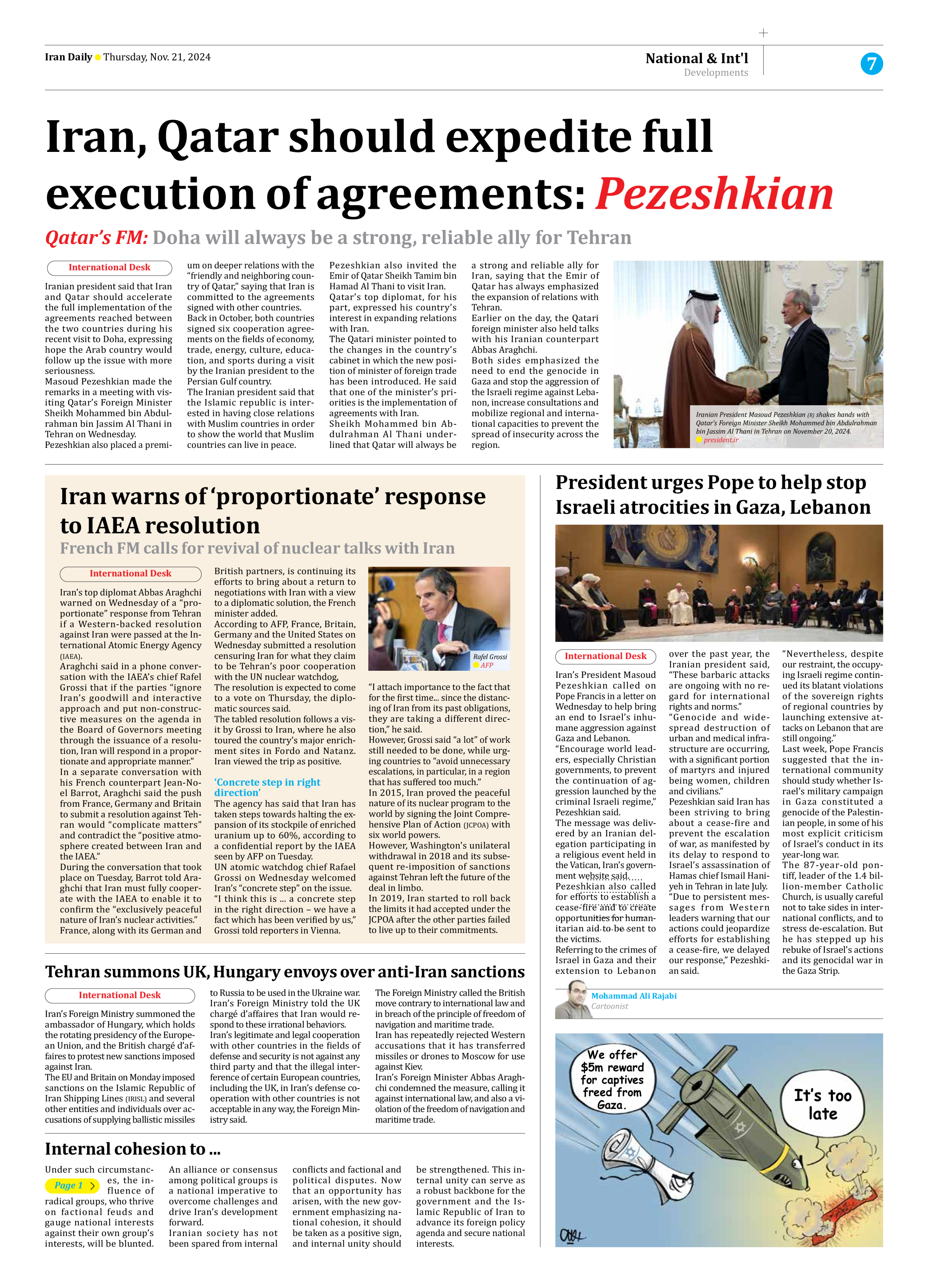
Iran warns of ‘proportionate’ response to IAEA resolution
French FM calls for revival of nuclear talks with Iran
Iran’s top diplomat Abbas Araghchi warned on Wednesday of a “proportionate” response from Tehran if a Western-backed resolution against Iran were passed at the International Atomic Energy Agency (IAEA).
Araghchi said in a phone conversation with the IAEA’s chief Rafel Grossi that if the parties “ignore Iran’s goodwill and interactive approach and put non-constructive measures on the agenda in the Board of Governors meeting through the issuance of a resolution, Iran will respond in a proportionate and appropriate manner.”
In a separate conversation with his French counterpart Jean-Noel Barrot, Araghchi said the push from France, Germany and Britain to submit a resolution against Tehran would “complicate matters” and contradict the “positive atmosphere created between Iran and the IAEA.”
During the conversation that took place on Tuesday, Barrot told Araghchi that Iran must fully cooperate with the IAEA to enable it to confirm the “exclusively peaceful nature of Iran’s nuclear activities.”
France, along with its German and British partners, is continuing its efforts to bring about a return to negotiations with Iran with a view to a diplomatic solution, the French minister added.
According to AFP, France, Britain, Germany and the United States on Wednesday submitted a resolution censuring Iran for what they claim to be Tehran’s poor cooperation with the UN nuclear watchdog,
The resolution is expected to come to a vote on Thursday, the diplomatic sources said.
The tabled resolution follows a visit by Grossi to Iran, where he also toured the country’s major enrichment sites in Fordo and Natanz. Iran viewed the trip as positive.
‘Concrete step in right direction’
The agency has said that Iran has taken steps towards halting the expansion of its stockpile of enriched uranium up to 60%, according to a confidential report by the IAEA seen by AFP on Tuesday.
UN atomic watchdog chief Rafael Grossi on Wednesday welcomed Iran’s “concrete step” on the issue.
“I think this is ... a concrete step in the right direction – we have a fact which has been verified by us,” Grossi told reporters in Vienna.
“I attach importance to the fact that for the first time... since the distancing of Iran from its past obligations, they are taking a different direction,” he said.
However, Grossi said “a lot” of work still needed to be done, while urging countries to “avoid unnecessary escalations, in particular, in a region that has suffered too much.”
In 2015, Iran proved the peaceful nature of its nuclear program to the world by signing the Joint Comprehensive Plan of Action (JCPOA) with six world powers.
However, Washington’s unilateral withdrawal in 2018 and its subsequent re-imposition of sanctions against Tehran left the future of the deal in limbo.
In 2019, Iran started to roll back the limits it had accepted under the JCPOA after the other parties failed to live up to their commitments.







